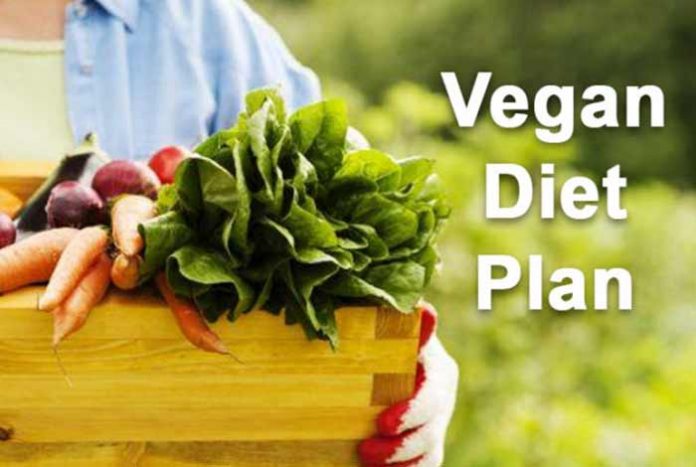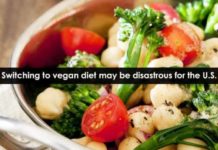
Are you interested in total animal-free diet? Vegan diet is one of the best options if you think so. Diet is the type of food you eat and hence, food is one of the necessities of your life. Generally, you search for taste in food. But, it is not possible to have tasty yet healthy food every time. So, what are your eating? Is it good for your health? You should keep an eye on the amount of nutrients intake per day. Also, you should try to follow a healthy diet plan; essentially, to reduce the risk of falling sick and developing any disease. A healthy diet plan includes foods that are rich in all types of nutrients and essential elements.
Ready for a vegan diet plan! Now, you will get to know about vegan diet plan in detail. A vegan refers to the person, who restricts his/her diet from any animal source. Vegan diet excludes dairy products as well. A vegan diet plan further helps in weight loss and muscle building. According to the National Institutes of Health (NIH), vegan diet helps in health maintenance and managing several diseases.
Why Vegan Diet?
The health awareness among people is higher than ever before. People are now aware of the environmental hazards of killing animals. People are more concerned about their health and wellbeing. They have the knowledge of common diseases and illnesses. The benefits of vegan diet is innumerable that motivate people to follow the same. Vegan diet only includes vegetables, fruits and whole grains with the exclusion of foods from animal sources, including dairy products.

Organic Foods in Vegan Diet
Use of organic fruits and vegetables in vegan diet is somewhat like “icing on the cake.” Organic foods are obtained from organic agriculture, which limits or avoids use of pesticides and synthetic fertilizers. By the consumption organic vegan diet, overweight and obesity can also be managed. When a body mass index (BMI) ranges between 25-30 then a person is said to be overweight. A person with BMI greater than 30 is considered obese. Further, someone with BMI greater than 35 kg/m2 is said to have severe obesity. Similarly, BMI greater than 40-44.9 kg/m2 depicts morbid obesity and the one with BMI above the range 45-50 kg/m2 is said to be superobese.
Vegan Diet Plan for Weight Loss
A vegan diet plan for weight loss includes 3 major meals:
1. Breakfast
2. Lunch
3. Dinner
| Sn. | Breakfast | Lunch | Dinner |
| 1. | 1 medium piece of fruit (apple or orange) |
Whole grain: ½ cup of hot cereal. | 1 cup raw and ½ cup cooked vegetables. |
| 2. | 1 slice of bread or overnight oats. | Whole grain: 30 gm of dry cereal | 1 cup cooked mushrooms. |
| 3. | ½ cup dry fruit (nuts or seeds) |
½ cup of legumes | Vegetable sandwich |

Vegan Food Groups
There are 5 major groups that include all types of vegan food. These are:
1. Whole Grains
2. Legumes
3. Vegetables
4. Fruits
5. Nuts, seeds and mushrooms
1. Whole Grains:
- Food: Bread, brown rice, whole grain pasta, corn, millet, barley, bulgur, oatmeal and quinoa.
- Sources: Vitamin B, minerals, fibers, proteins and carbohydrates.
- Servings: Five or more a day.
- Serving Size: ½ cup of hot cereal, 30 gm of dry cereal and 1 slice of bread.
2. Legumes:
- Food: Lentils, chickpeas, black beans, navy beans, baked or refried beans, soymilk, tempeh and veggie burgers.
- Nutrients: Iron, calcium, zinc, vitamin B, fiber and protein.
Reduce cholesterol and stabilizes blood sugar. - Servings: Two or more per day.
- Serving Size: ½ cup of cooked beans, 225 gm of soymilk and 115 gm ounces tofu.

3. Vegetables:
- Food: Dark leafy greens like broccoli, kale, mustard, collards, turnip greens, spinach, chicory and bok choy. Yellow-orange vegetables like carrot, winter squash, yams and pumpkins.
- Nutrients: Phytochemicals, vitamins, fiber and minerals.
- Servings: Four or more per day.
- Serving Size: 1 cup raw and ½ cup cooked.

4. Fruits:
- Food: Apples, citrus fruits, melons, oranges, watermelon, papayas, bananas, and strawberries.
- Nutrients: Vitamins (especially, vitamin C), minerals and carbs.
- Servings: Four or more per day.
- Serving Size: 1 medium piece of fruit; ½ cup cooked and dried fruit. 4 ounces juice.

5. Nuts, Seeds and Mushrooms:
- Food: Walnut, almond, cashew, hazelnut, pine nut, pumpkin seeds and mushrooms.
- Nutrients: Vitamins, minerals, proteins, fats and fibers.

Nutritional Requirement
The amount of nutrients required varies according to age. This is shown in the table below:
| Sr. No. | Age group\Nutrients | Vitamin B12(mcg/day) | Vitamin D (mcg/day) | Zinc (mg/day) | Iron (mg/day) | Iodine (mcg/day) |
| 1. | Adults | 2.4 | 15 | 8-9 | Men:8 Women:18 |
150 |
| 2. | Pregnant | 2.6 | 20 | 11-12 | 27 | 220 |
| 3. | Lactating women | 2.8 | 20 | 12-13 | – | 290 |
- The iron intake in post-menopausal women should be 8 mg/day.
- The calcium intake for adults should be 1000 mg/day and 1200 mg/day in the age group of 50 years and above.

A vegan diet may still differ from person to person as many factors need to be considered, such as gender, BMI, genes, ethnicity and so on. It is therefore recommended to consult a nutritionist or dietician before opting any vegan diet plan.






